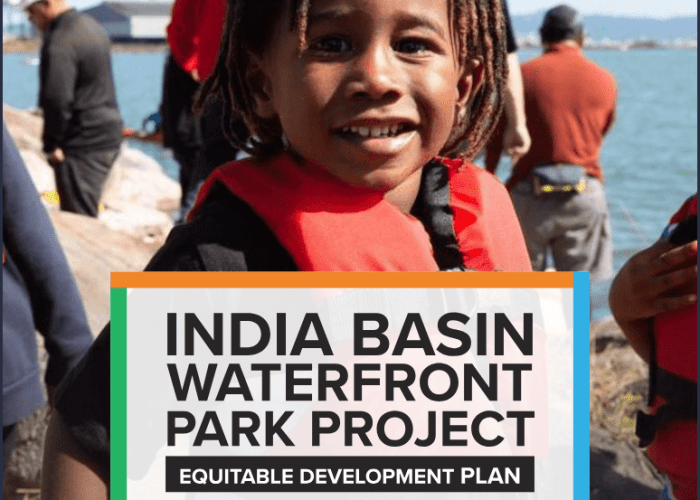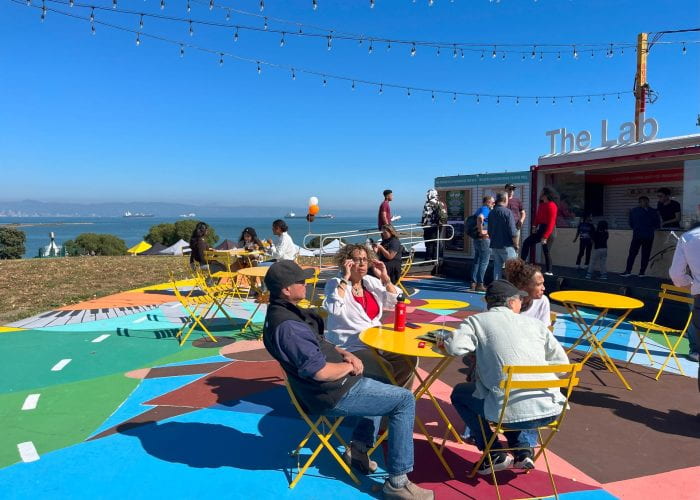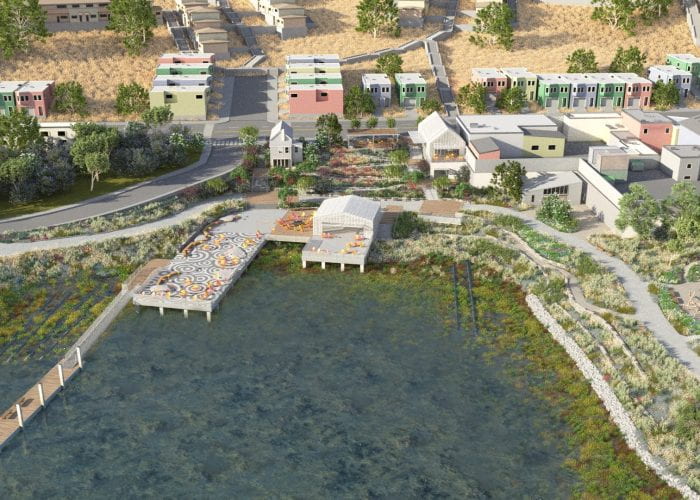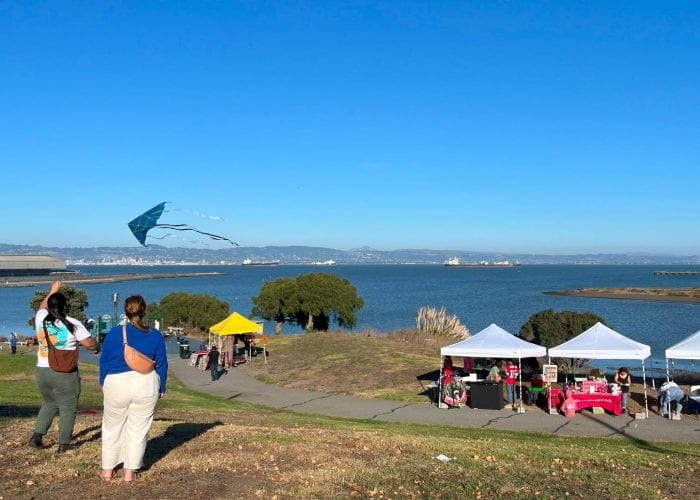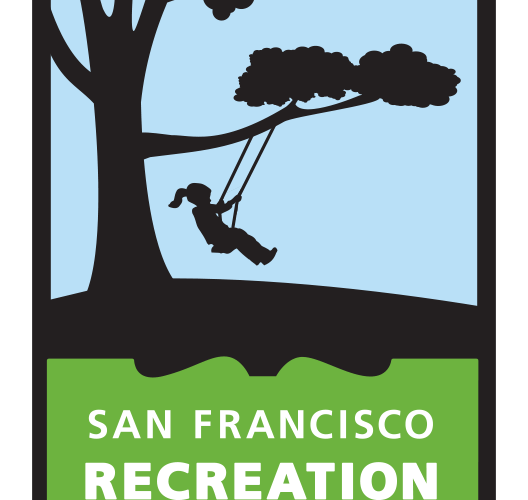
My Journey in San Francisco’s India Basin
In this week’s blog, Jade Carter ’24 Environmental Studies, embarks on a mission to bridge gaps between local government and grassroots advocacy in San Francisco’s Bayview-Hunters Point neighborhood. Through hands-on involvement , they confronted deep-seated community mistrust and explored avenues for equitable development. Ultimately, their narrative showcases the power of collaboration, highlighting the author’s newfound appreciation for the potential of local governance to positively impact communities.
Last spring, I applied to the McCarthy Fellows in San Francisco program though the Leo T. McCarthy center. The program’s goal of uniting students with mentors in local government stood out to me as an incredible opportunity to expand my knowledge of public service and my own development. Coming from a grassroots advocacy background, most of my interactions with local government centered on demanding accountability for questionable practices or a seemingly disconnect between policy and the people it affects. I wanted to know why this disconnect exists and where in the process it happened. I wanted to gather the tools to be a better advocate for the people and places that I care about.
When I was accepted into the program, I was placed with the San Francisco Department of Recreation and Parks (RPD) on their India Basin Waterfront Park project. The India Basin Waterfront Park (IBWP) is described as “San Francisco’s next great park,” and is comparable in scale to the Crissy Field in the Presidio, both in terms of environmental cleanup, coastal rehabilitation, and physical size. The proposed park stretches from Heron’s Head Park in the north to a new housing development at 700 Innes Avenue on the south side of India Basin, creating a 10-acre waterfront park that closes a critical gap in the San Francisco Bay Trail. India Basin is situated in the Bayview-Hunters Point (BVHP) Neighborhood in the southeast corner of San Francisco. I had worked in BVHP from a community advocacy standpoint through the non-profit organization Greenaction for Health and Environmental Justice and was thrilled at the opportunity to learn about environmental justice issues in the neighborhood from the local government side.
The community of Bayview-Hunters Point has long faced discriminatory and harmful practices by the City and County of San Francisco and has generally been excluded from development opportunities. Historically, the neighborhood was subjected to redlining, industrialization, segregation, disinvestment, and pollution, including a radiological Superfund site. Since the Redevelopment Plan of 1977, however, the Bayview has emerged as a focus area for reinvestment and, unfortunately, gentrification. A long and fraught history with redevelopment has led to a sense of deep mistrust within the community of development projects. When I signed on to intern with the IBWP Project, I was aware of this history and local mistrust, and I was deeply curious how RPD aimed to build a beautiful, ecologically beneficial green space in a way that supported and uplifted the community instead of threatening it.
Building trust is intrinsic to the long- and short-term success of the IBWP, and I rapidly learned that RPD was committed to this goal. To address this need and keep a wary eye on the extractive history of development projects in the neighborhood, the IBWP Project sought to build a park by and for the BVHP community. The IBWP Project is a collaboration between the San Francisco Recreation and Parks Department (RPD), the city-wide non-profit organization San Francisco Parks Alliance (SFPA), the national NGO Trust for Public Land (TPL), and the BVHP- based community non-profit A. Philip Randolph Institute (APRI). This multilateral collaboration unites a hyper-local perspective with city government and national greenspace expertise to promote an equitable approach to public space development. This commitment to equitable development is enshrined in the Project’s Equitable Development Plan (EDP), which was drafted in collaboration with the BVHP community.
Emphasizing local leadership and community involvement is paramount, and I am committed to maintaining the critical lens of equity that I have developed through this fellowship throughout my career.
The India Basin EDP outlines guiding principles and serves as a blueprint for both long and short-term development efforts at the park. During my time at RPD, I worked under the program manager for the India Basin EDP, helping to facilitate and streamline project governance from the RPD side of the 4-part collaboration. The EDP informed every aspect of my work. I pulled language from it to draft mini-grants and donations frameworks, referred to the goals and strategies on a daily basis, and attended committee meetings to review upcoming events based on their alignment with the EDP. While community collaboration is not new to the RPD Capital and Planning Division (indeed, it seems to inform every park project that I learned about), the structure of an equitable development plan is a first for San Francisco.
My time at RPD working on the India Basin EDP showed me just how much effort and care can go into partnerships and community collaboration, even within the bureaucracy of city government. It gave me hope for what representative and supportive governance can look like. My experience with this project will stay with me for a long time. Thanks to this fellowship, I have expanded my understanding of local government, project management, collaborative leadership, and partnership building. I had the opportunity to work with community members to help realize their dreams of public space, and I got to share and grow my passion for public lands through these collaborations. I gained technical skills in administration and project governance. Most of all, I gained a true appreciation for the power of local government to bring people and organizations together to better our communities.
Learn more about becoming a McCarthy Fellow In San Francisco

